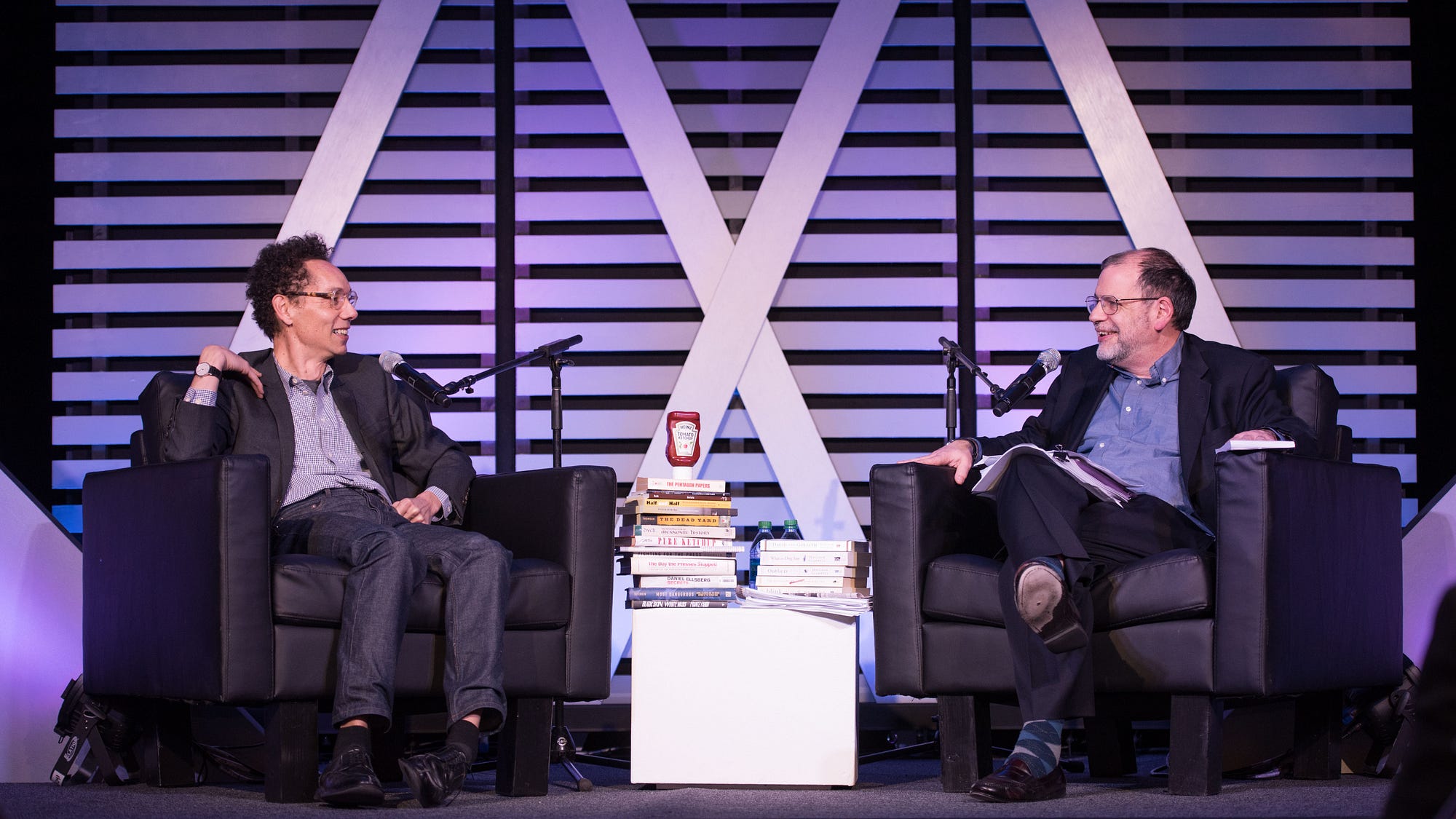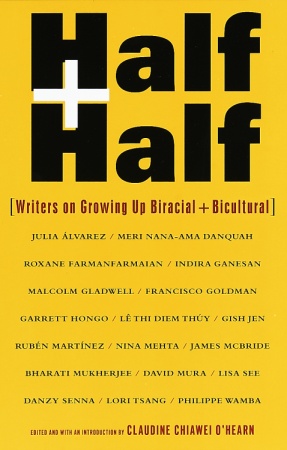Lost in the Middle: Growing up Across Racial & Cultural Divides
The Washington Post
1998-05-17
Malcolm Gladwell
His parents conqured racial difference with dignity and relative ease. But race became a more complicated question for their son.
One summer Saturday, when I was growing up, my father piled my brothers and me into the family station wagon and took us to a barn raising. This was in rural southern Ontario, in the heart of Canada’s Old Order Mennonite country, where it was the custom when someone’s barn burned down for friends and neighbors to rebuild it. There were probably 200 people there that day. They came from the surrounding farms in black horse-drawn buggies, the women in gauzy caps and gingham dresses, the men in white shirts and black pants. The women set up long picnic tables outside, and piled them high with bread and luncheon meats and pickles, and pies for dessert. The men swarmed over the skeleton of the barn, those on the roof and on ladders against the walls hammering away in unison, everyone else forming a long human chain, passing plywood and roofing metal and nails hand to hand to hand from the bottom to the top. It was a marvel of improvisational coordination, a communitarian ballet of burly cleanshaven Mennonite farmers in straw hats and loose cotton shirts, and in the midst of it all, in happy and oblivious contrast to everything around him, was my father — slender, bearded and professorial, in the tie he rarely left the house without…
…Once my mother graduated, they began a period of frantic courtship. Two weeks later, my mother returned to Jamaica to teach again, and my father informed his parents that they intended to marry. It was a difficult moment. My paternal grandparents had grave objections to mixed marriages. They objected, citing New Testament verses to the effect that God had set boundaries for the habitation of nations. “It’s wrong for Graham to have a black child,” my grandmother told my mother. “It is wrong for you to have a white child.” It is easy, I think, with the benefit of hindsight, to conceive of my grandparents as bigoted or small-minded. But that was not it at all. They were simply expressing what my father, apparently, could not see, that his decision to marry my mother was a revolutionary act. When my father made it clear that he would not be moved, they acquiesced. His three sisters were my mother’s bridesmaids. Her wedding veil was my grandmother’s wedding veil…
…I am not like my parents. I do not have my father’s gift for overcoming social barriers, nor my mother’s gift for appreciating when differences are not relevant. I go back and forth now between my two sides. I never feel my whiteness more than when I’m around West Indians, and never feel my West Indianness more than when I’m with whites. And when I’m by myself, I can’t answer the question at all, so I just push it out of my mind. From time to time, I write about racial issues, and always stumble over personal pronouns. When do I use “we”? In a room full of people I do not know, I always search out the ones who fall into the middle, like me, out of some irrational idea that we belong together.
I worry sometimes that this is the wrong thing for the child of a mixed marriage to feel. My parents conquered difference, and we would all like to think that sort of accomplishment is something that could be passed down from generation to generation. That’s why we’re all, in theory, so excited by the idea of miscegenation — because if we mix the races, presumably, we create a new generation of people for whom existing racial categories do not exist. I don’t think it’s that easy, though. If you mix black and white, you don’t obliterate those categories; you merely create a third category, a category that demands, for its very existence, an even greater commitment to nuances of racial taxonomy. My mother never had to think about whether she was black. She was. I have to think about it, and turn the issue over in my mind, and gaze in the mirror and wonder, as I was so memorably asked, what I am…
Read the entire article here.



